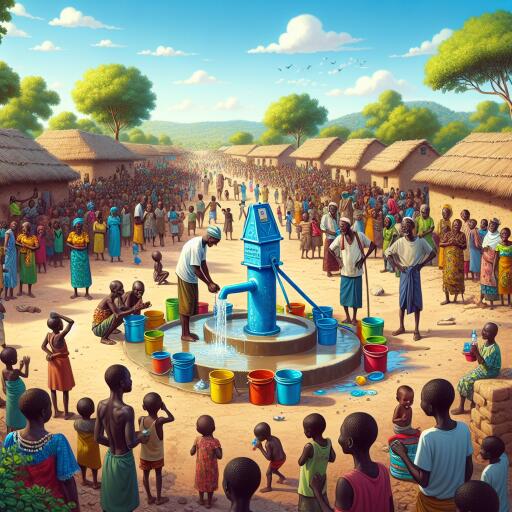
Enhancing Clean Water Accessibility for Underprivileged Communities
In an effort to address the vital need for clean water across various disadvantaged areas, innovative programs are targeting the facilitation of more accessible and affordable clean water solutions. These endeavors are primarily focused on communities that are economically challenged, aiming to bridge the gap in clean water access.
In specific terms, these initiatives are tailored to serve communities in regions that are less advantaged, including both rural settings and small towns, with a keen emphasis on areas hosting refugee populations. A standout aspect of these initiatives is the strategic pricing model designed to make clean water not just accessible but also affordable for all members of these communities. This is crucial given the pivotal role that access to safe drinking water plays in the overall health and well-being of communities.
To illustrate, in certain underdeveloped areas within Northern Uganda, there is a distinctive pricing structure for water, tailored to ensure affordability. For local residents in small towns and rural growth centres, the cost for a unit of water (equivalent to 1,000 litres) is set to a minimal fee, thereby enhancing access to clean water. This pricing model further optimizes affordability in regions inhabited by refugees and their host communities. Here, the cost is significantly reduced for water supplied through public standpoints. Moreover, for those accessing water directly from yard taps within the refugee settlements, the charge per unit is slightly higher but still maintained at a reduced rate to ensure that clean and safe water is within reach for the majority.
The thoughtful arrangement of water pricing is a testament to the relentless efforts to tackle the challenge of water scarcity in impoverished communities. Such measures not only foster better health outcomes by preventing water-borne diseases but also contribute to the upliftment of the overall quality of life for individuals in these areas. By ensuring that clean water is not a luxury but a basic right accessible to everyone, including the less privileged, these initiatives are paving the way towards a more equitable and sustainable future.
Ultimately, the goal of creating more inclusive access to clean water is a crucial step in addressing global water scarcity issues, especially in regions where the lack of clean water poses a significant barrier to social and economic development. As these innovative programs continue to expand and evolve, the hope is that more communities will benefit from the essential life-giving resource of clean water, thereby marking significant strides in the collective fight against poverty and disease.





Leave a Reply